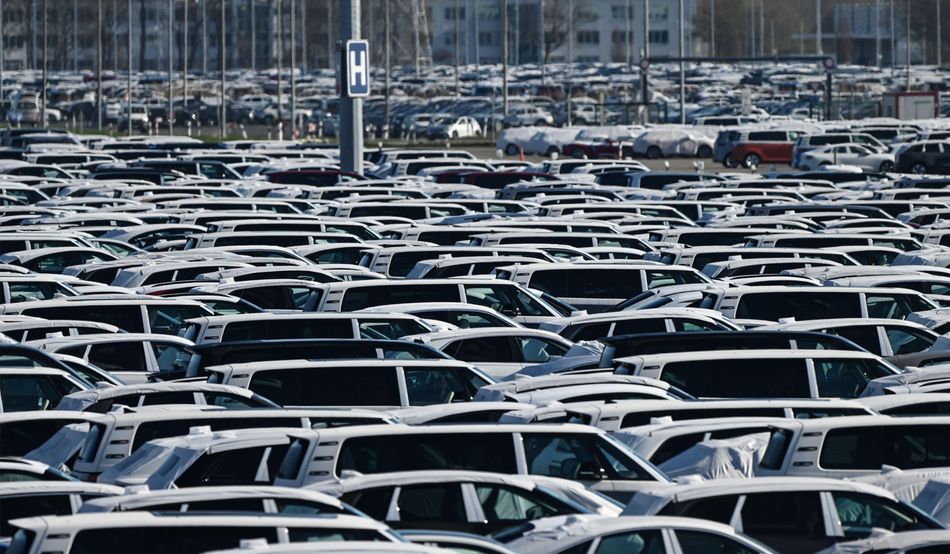As this crazy and dangerous US trade war begins, it is not hard to see why Donald Trump and JD Vance hate the European Union so much. Europe has the size and scale not only to retaliate against the Trump tariffs but also to largely insulate itself from them.
The tariff wars of the 1920s and 1930s are much cited in the current debate, but the position of Europe is radically different and better than a century ago. In pre-war Europe, the continent itself was balkanised by high tariffs and trade barriers—quite apart from those coming from the US. Today, thanks to nearly 70 years of the EU, the great majority of European trade is tariff- and barrier-free within Europe itself, and protected by the EU customs union and single market from any Trump trade madness.
By “protected” I don’t just mean that Europe’s existing trade patterns are safe from outside influence: they are also insulated from within. Virtually no one, even of the Viktor Orbán/AfD/Marine Le Pen far right, wants to revert to the pre-EU era of trade tariffs and barriers, and to do so they would have to dismantle the EU itself. So the Trump trade war won’t be contagious within Europe itself—again, completely unlike the 1920s and 1930s.
Germany, the EU’s powerhouse, now imports nearly 10 times as much from the rest of Europe as it does from the US, and exports nearly seven times as much to the rest of Europe as it does to the US. Similar orders of magnitude apply across the EU. So whatever Trump does, it will have a marginal, not a fundamental, impact on EU trade.
It helps too that the EU’s trade tensions with China appear unlikely to degenerate into a regime of high universal tariffs and wanton trade aggression. On the contrary, as Trump tariffs China on a par with Europe, a wary rapprochement between Beijing and Brussels becomes imperative.
Furthermore, there is now an overwhelming incentive for the EU to integrate trade and procurement further and faster—not just because of Trump’s tariffs but equally caused by his pro-Putinism and his abandonment of Ukraine. The last month alone has seen decisive moves to create a huge EU defence fund for spending only within Europe. And Germany’s parliament has voted for huge new defence spending to help Europe rapidly secure strategic “independence from the US”, in the stark words of incoming chancellor Friedrich Merz.
By the same token, today’s EU—unlike 1920s Germany—has the capacity to retaliate against US tariffs on a basis of equality. This is particularly the case in respect of services, where the US has a large trade surplus with the EU. Howard Lutnick, Trump’s belligerent commerce secretary, keeps going on about European digital services taxes (including Britain’s) as a reason for new US tariffs. But if those taxes increase in retaliation, potentially raising billions from the US tech giants, Musk and his friends won’t be keen on a further ratchet.
Where does this leave Britain? Even with Brexit, there has been no UK trade war with the EU in the form of tariffs and quotas—just marginally less trade, because of the self-imposed exit from the customs union and single market. The EU continues to be by far the UK’s major trading partner, and Trump’s tariffs are a powerful driver to improve the Brexit trade deal. As major new European defence procurement comes into view, the incentive for a far closer UK-EU trade partnership becomes greater still.
The danger is that Trump, Vance and Lutnick seek to pressure Starmer into abstaining from new EU initiatives, with the promise of tariff concessions which never materialise or are ultimately worth far less than the European trade foregone.
Trump himself is rapidly minimising this danger. He hasn’t given the UK a single substantive trade concession over the EU in his mega tariffs on steel and cars, and it doesn’t appear that any are forthcoming on “Liberation Day”. Unless there is a dramatic move soon, it would be palpably absurd to hold back on Europe, waiting for a Trump trade deal, when the reality is just a Trump trade war. The trouble is, Brexit Britain has spent a decade chasing trade phantoms; it needs to wake up fast.














